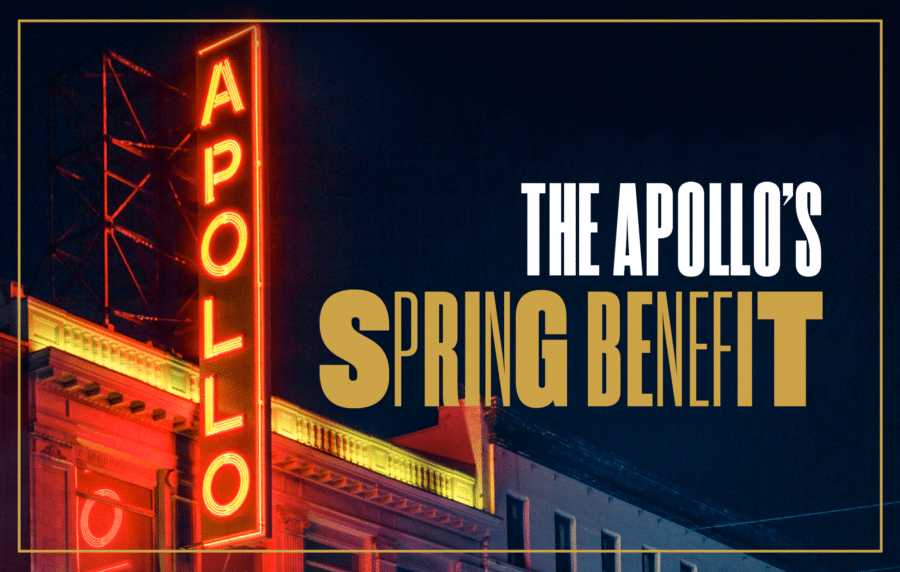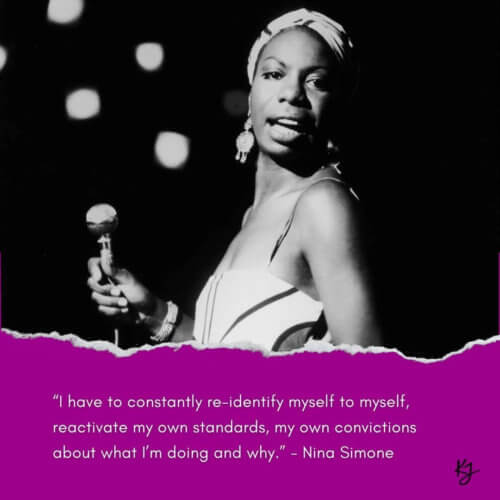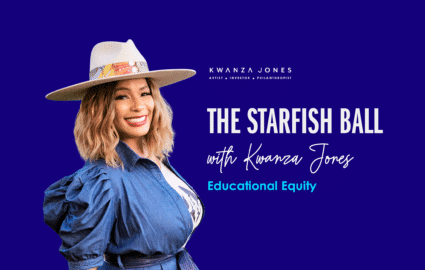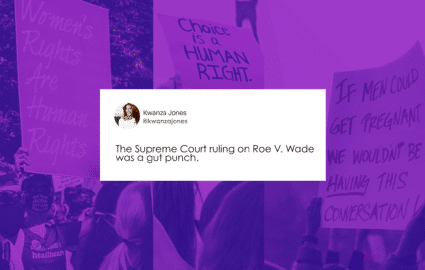Influence of Black Music, Artistic Defiance, And The Apollo Theater
By Kwanza Jones

Hey Boost Friend™
As a member of the Board of Directors of Apollo, I recently attended the Spring Benefit Fundraiser. It is a spectacular celebration of the Theater’s rich legacy and its commitment to its future as a mission-led arts and cultural organization, a community anchor, and an economic driver for Harlem and New York City.
The Apollo Theater is a cultural institution that has provided a place where voices are elevated and experiences are created.
That's why I was so excited to be the premier sponsor of the event.
It got me thinking... what does it mean to make an impact as a Black artist? I talked about this In the Kwanza Jones Boost Friends™ Community, and I will be sharing it here with you.
The Influence of Black Music
June is Black Music Month. A month for celebrating the art, music, and culture that impact the world. For me, it’s about history. It’s about the foundation. It’s about the roots.
Many African American musicians use their art as a way to share powerful messages and capture the struggles and triumphs through storytelling. Artists like Billie Holiday, Michael Jackson, and Kendrick Lamar just to name a few. The everlasting effect we see being made by artists like them is how we keep the conversation going. It is how we shed light on the injustices that Black people face every day in America. The fact is, an injustice to one is an injustice to all.
One example is Strange Fruit, which protests the horrific lynchings of Black Americans in the 20th century. It was originally written by Abel Meeropol and sung by many artists, including Billie Holiday and Nina Simone. The creation of the poem (that later became a song) shows the power of allyship... if you see something wrong say something and do something about it.

Black creativity touches almost every genre of music around the world. Because of slavery, West African beats can be found in Latin American genres such as Bachata, Cumbia, and Reggaeton just to name a few. The drum is the foundation of West African music, and gave birth to new genres and cultures in Latin America.
Jazz, Rock, Hip-Hop, R&B, and more were all created in America by Black people. That’s the foundation of the music industry today. Huge artists like Elvis Presley drew inspiration from rock-n-roll artists such as Sister Rosetta Tharpe, who was recently inducted into the Rock & Roll Hall of Fame in 2017, and Chuck Berry, who Presley covered a few of his songs. Sister Rosetta Tharpe and Chuck Berry are prime examples of musical influencers in Rock & Roll who didn't get the proper recognition they deserved.
You can also see references to Black American culture in art forms such as K-pop, on the runway of designer fashion shows, and even through social media trends/dances. The impact touches all genres and cultures around the world.
How does equity and inclusion play a role in music?
The answer is simple: representation and compensation. We see some of the biggest record labels in the world, with some of the most influential artists signed, but they are not being compensated appropriately.
Black creatives need to hold more executive positions in the music industry. According to a report by the Annenberg Inclusion Initiative at USC, out of 4,060 music executives across 119 music industry companies, only 7.5% were Black. The representation of minorities and women got even smaller when climbing the corporate ladder. There are only 10 people of color who hold the title of executive or higher at the music labels studied, and one of them is the independent artist Jay-Z.
According to Forbes, independent musicians are the fastest growing division of the music industry. Thanks to platforms like Tiktok and Soundcloud, getting music to the masses has become a much easier process and has created a new way for independent artists to take control of their creative careers.
Access and opportunity: The Apollo Theater
As an independent artist, I’m able to embody so many different personas and express my creativity not only through creating music, but also by partnering with organizations that boost and inspire the culture. Impact for me is about building community and investing in the next generation.
I'm so proud to sit on the Board of Directors for the world-famous Apollo Theater in Harlem and I'm committed to furthering the legacy and vision of such a staple in the Black community. I recently visited the Apollo for their 2022 Spring Benefit Fundraiser and had the opportunity to meet and talk with some of the most creative and trendsetting Black artists of today.
For me, the Apollo Theater has served the cornerstone for supporting artists in art, film, music and dance. It has provided a space for voices to be heard where they usually wouldn’t be. It’s not just teaching art. It’s teaching people about art.
That’s why I’m on the Board of Directors. I want to make sure to continue on the mission that we are seen and that our voices are heard.
So how can you make a difference?
It's simple: take time to understand the historical influence and references that come from ALL of your favorite artists today. Continue to stream and support Black independent musicians, buy merch, and attend local live music events. Appreciate, don’t appropriate!
Want to learn more about the Kwanza Jones Boost Friends Community? Click here.
Who loves you? I do.
Bye for now.




Share this article: